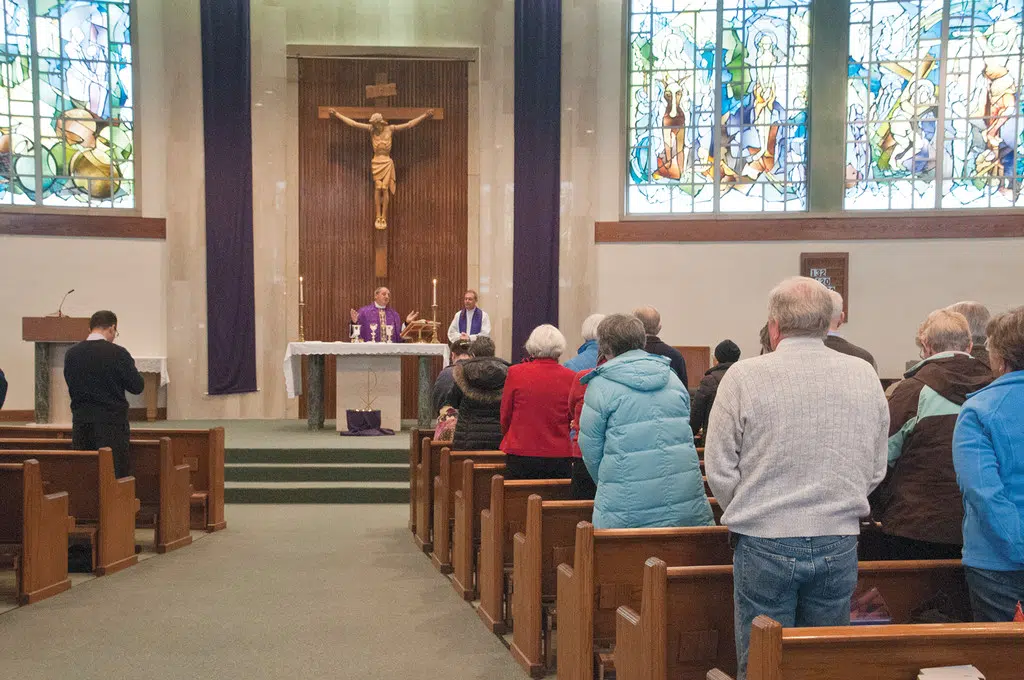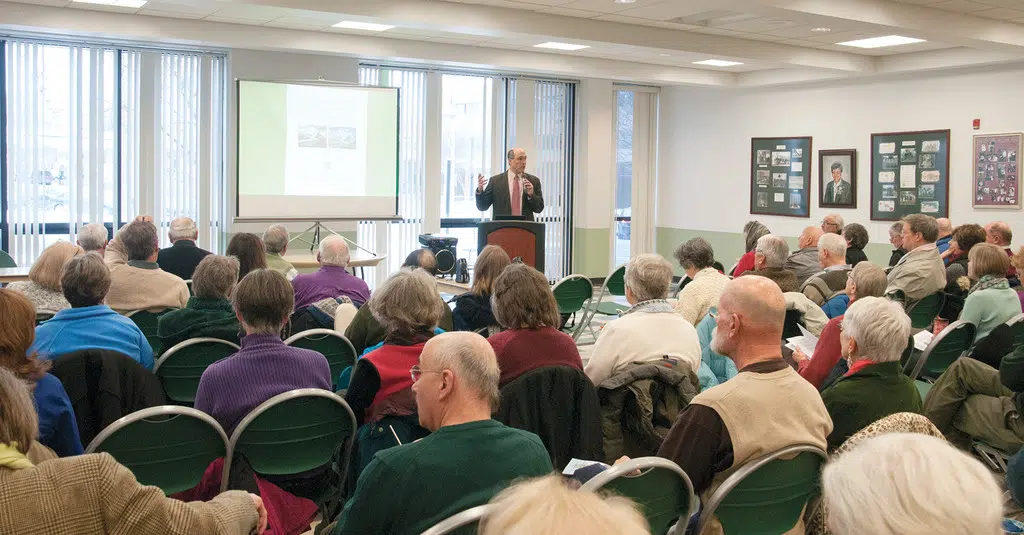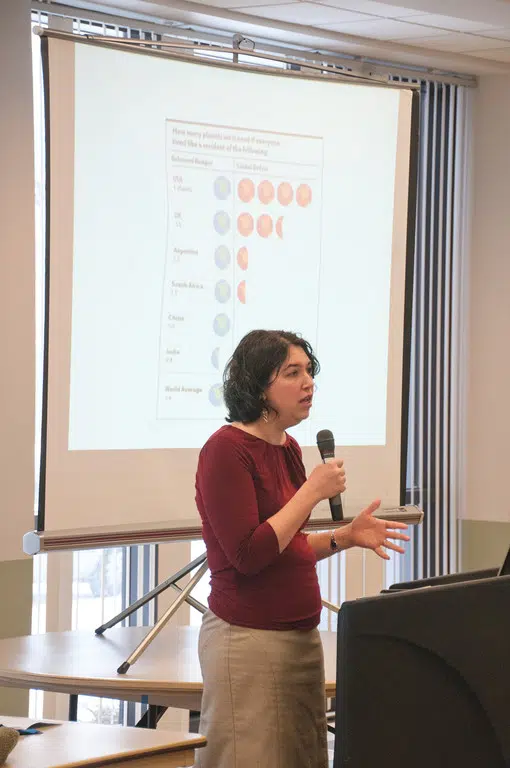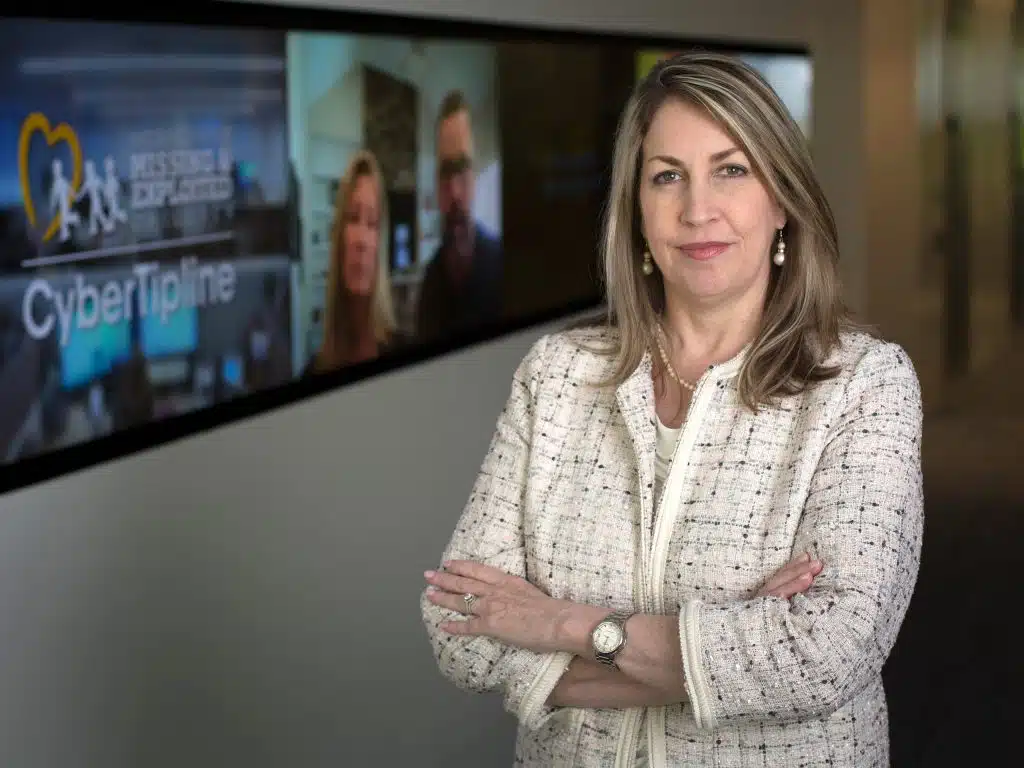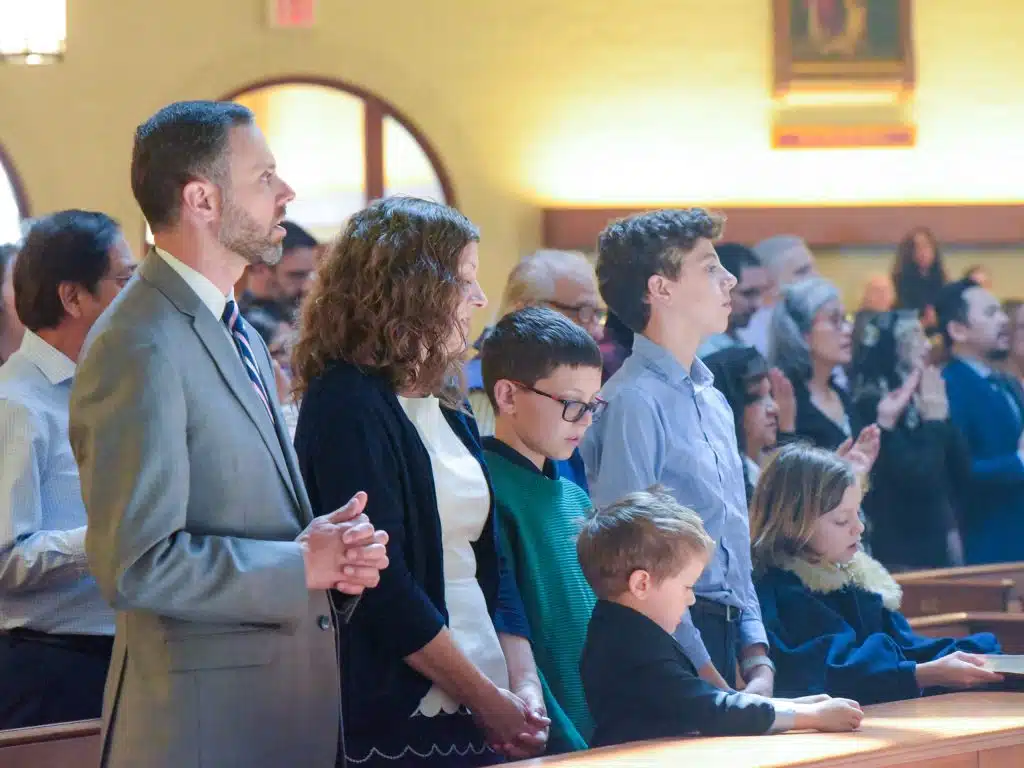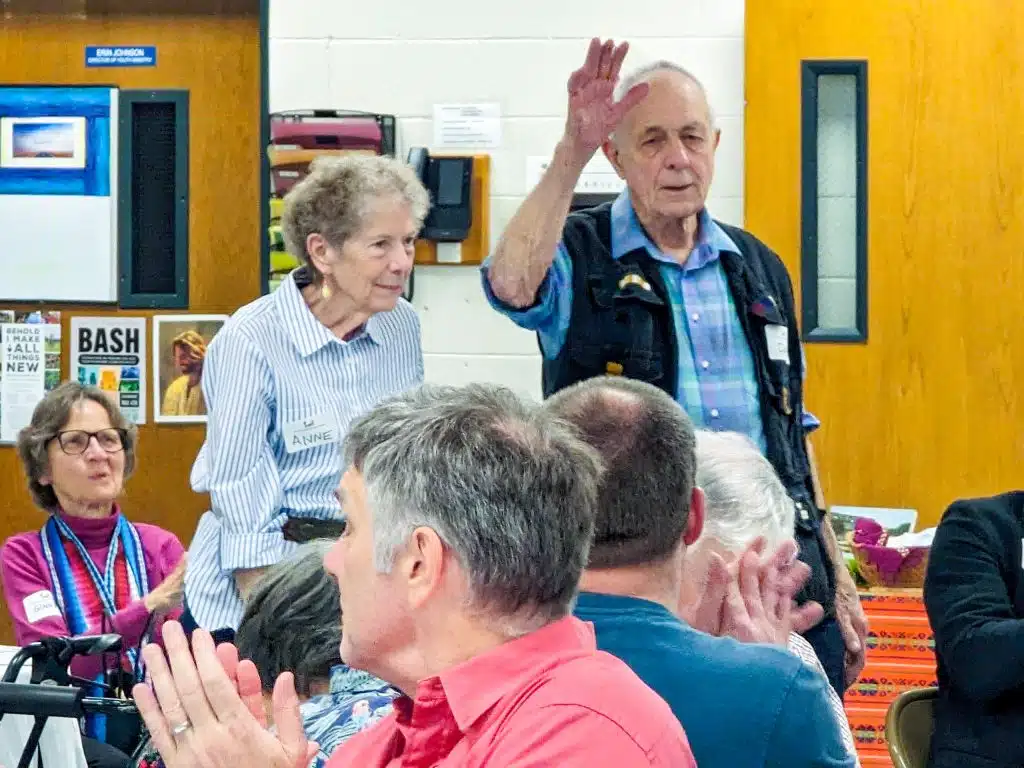Due to its tradition of caring for the environment, its large
numbers and its concern for the human person, the Catholic
Church has a unique role to play as the global community
grapples with climate change, according to speakers at the
ninth annual Peace Symposium, “Care for Creation, Care for
Peace: The Link Between Climate Change and Human Security.”
Presented by the diocesan Peace and Justice Commission and
held at St. Charles Borromeo Church in Arlington, the Feb. 21
symposium was punctuated with excitement about Pope Francis’
upcoming encyclical on the environment, to be released this
summer.
The morning event began with Mass, celebrated by Father Gerry
Creedon, Peace and Justice Commission chairman, and
concelebrated by Father Thomas P. Ferguson, ex-officio of the
commission.
Around 120 people braved predictions of snow to attend, and
flakes started falling midway through the talks.
The keynote speaker was Daniel Misleh, founding executive
director of Catholic Climate Covenant, a partnership of 14
national Catholic organizations, including the U.S.
Conference of Catholic Bishops.
Highlighting some of the most pressing climate issues, Misleh
said both urban and rural communities are affected by
environmental changes, with the poor and those with “the
fewest resources to respond” being especially vulnerable. He
showed a map projection indicating that by 2050, regions in
Africa may see corn production decrease by 20 to 30 percent.
Misleh gave examples of how climate change can destabilize
entire regions.
He said the Arab Spring – a wave of pro-democracy uprisings
that have swept some Arab nations since 2011 – was preceded
by droughts and fires in Russia and floods in Pakistan. These
disasters, influenced by climate change, affected wheat
production and dramatically raised the price of bread for
countries like Egypt, said Misleh.
“I’m not saying that’s the only reason for the Arab Spring,”
he said. “But it was a factor.”
Misleh also warned that climate change can create “climate
refugees,” those fleeing from temporary or permanent changes
to their environment.
But it’s not all bad news, said Misleh. From businesses to
universities and the military, “people are beginning to think
about it seriously,” he said.
Misleh said Catholics are “uniquely positioned” to combat
climate change. Making up about 22-23 percent of the U.S.
population, Misleh estimated the church owns about 70,000
buildings.
“Imagine if those buildings could reduce their energy by 10
percent,” he said. “That’s turning off lights and computers,
just doing simple things.
“If 5 percent of Catholics were active on climate change, we
would be three times bigger than the World Wildlife
Foundation in this country. … What a footprint we
have.”
One of the most exciting developments, said Misleh, is Pope
Francis’ upcoming encyclical.
“Some people are going to gloat and some people are going to
grumble at the document,” Misleh said. “But it’s not going to
be a political statement; it’s going to be a pastoral
document.”
He said it will have, however, political, moral, social and
economic implications. The pope indicated he hopes the
encyclical will influence this year’s talks at the United
Nations Climate Change Conference in Paris. Typically big
powers do all the talking and smaller nations are
marginalized at such talks, but the pope is trying to change
that dynamic, according to Misleh.
Following a brief question-and-answer period, Walter Grazer,
former director of the U.S. bishops’ Environmental Justice
Program, spoke about the link between environmental changes,
security and peace and the need to look at climate change in
light of Catholic spirituality and theology.
Grazer said he believes Pope Francis’ encyclical will be a
continuation of themes expressed by St. John Paul and retired
Pope Benedict, but it will be infused with the pope’s own
distinct spirit.
The final speaker was Marisa Vertrees, former social justice
director at St. Charles and faith mobilization manager for
the ONE Campaign, an organization that works to end extreme
poverty and preventable disease.
Vertrees said we must reorient the way we live in the United
States and offered suggestions for lifestyle changes.
Since environmentally harmful emissions come from meat
production and transportation, Vertrees said Lent is a
fitting time to cut back on meat consumption beyond just
Fridays.
Symposium attendee Glenn Willard, a parishioner of St.
Francis de Sales Church in Purcellville, acknowledged that in
the United States, people have trouble changing their ways.
“We like all our comforts,” he said. The symposium talks were
a reminder that making changes on behalf of the environment
is “a matter of justice, especially for the poor,” he said,
adding that it’s “not our creation but God’s.”
Scott can be reached at [email protected] or on
Twitter @KScottACH.
